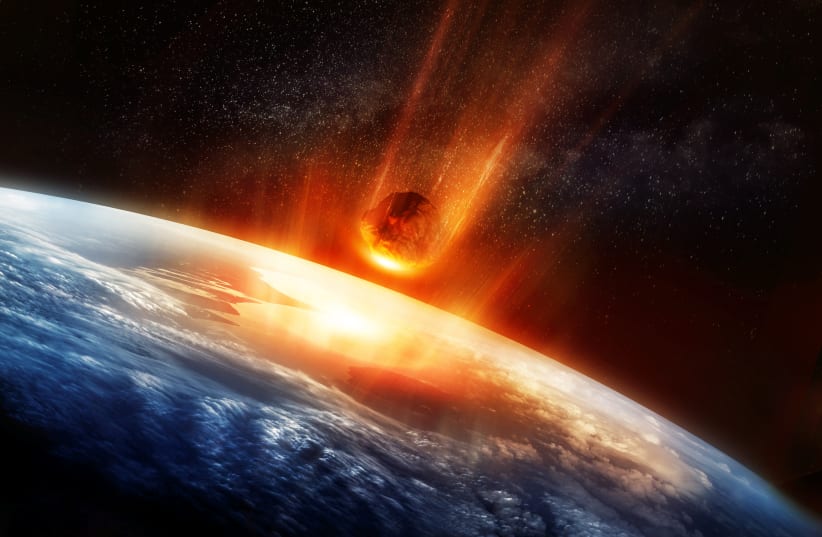A meteor around the size of a Pembroke Welsh Corgi and weighing around the total weight of four baby elephants struck the Earth near McAllen, Texas last Wednesday, NASA confirmed this week.
The meteor impact, reported by local Dallas-area Fox affiliate KDFW, took place at around 6 p.m. last Wednesday local time, with some eyewitnesses spotting a possible meteor impact in the sky at the time.
This was later confirmed by the National Weather Service, which said a Geostationary Lightning Mapper spotted the flash of a meteor just half an hour earlier. At the time, it wasn't clear what made the flash, especially since there weren't any thunderstorms in the area that could have produced the flash.
Home security camera footage obtained by KDFW seemed to have captured an apparent sonic boom, with the loud noise causing birds to flee, while many locals claimed to have felt a possible earthquake.
ALERT Reports of ‘meteorite’ seen over Mission in South Texas as terrified residents report loud explosion and shaking homes pic.twitter.com/6TrFeSmDDT
— Insider Paper (@TheInsiderPaper) February 16, 2023
What was the meteor that hit the Earth in Texas like?
According to experts from NASA's Johnson Space Center, the meteor in question was just over 60 centimeters in diameter and weighed half a ton (or around 454 kilograms).
To put that in context, a baby elephant could weigh as much as 113 kilograms, according to experts from the Denver Zoo. This means that despite its diameter only being around the length of average Pembroke Welsh Corgi, the meteor still weighed as much as four baby elephants.
The meteor was flying at a speed of around 43,452 kilometers per hour, several times the speed of sound, and while it exploded in the Earth's atmosphere around 34 kilometers above the ground, its fragments did still manage to touch down.
Overall, the meteor impact had the energy equivalent of eight tons of TNT.
However, there don't seem to be any reported casualties or damage from the impact.
Either way, meteor impacts do happen fairly often. In fact, according to the American Meteor Society, the Texas meteor was just one of at least three meteor impacts that happened over the course of three days – the other two being in France and Italy, according to CBS News.
When meteors do hit the Earth, they usually burn up in the Earth's atmosphere – which is what happens during meteor showers. If they don't, then the atmosphere at least significantly slows them down, reducing the force of the impact.
While the meteor fragments could theoretically be dangerous as they are landing, they more or less pose no risk to anyone afterward. These space rocks tend to cool rapidly and aren't necessarily contaminated with anything harmful.
A meteor or asteroid would have to be much larger to cause any significant damage to the planet.
What is a meteor?
Meteors originate from asteroids or other large bodies in space. Asteroids under a meter in size are simply known as meteoroids.
When meteoroids or very small asteroids impact the Earth's atmosphere, they become visible but largely disintegrate, sometimes forming bright fireballs in the process. Anything left upon impact is what is known as a meteorite.
This explosion is what usually befalls most meteors that enter the Earth's atmosphere.

